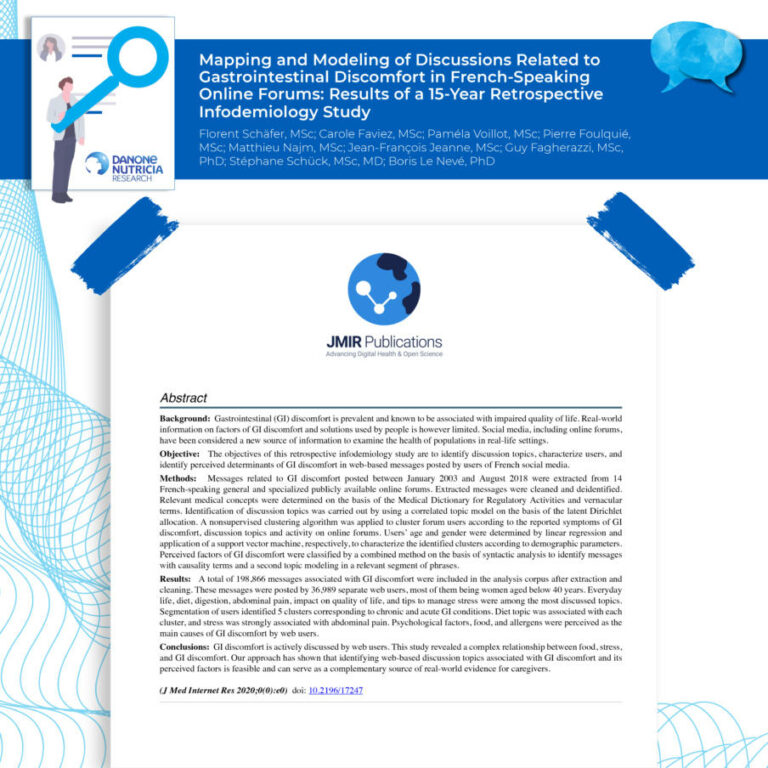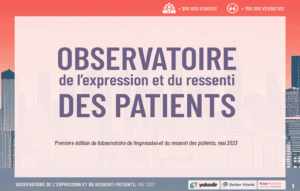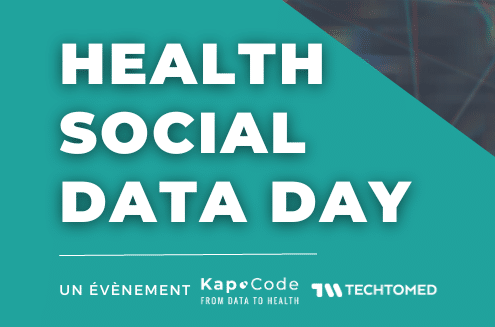Gastrointestinal comfort can be disrupted by various factors such as stress and diet. Kap Code and Danone Nutricia Research have conducted an observational study based on social media as a real-world information source, to better understand how French-speaking web users perceive Gastrointestinal (GI) discomfort.
GI discomfort: the role of social media and online forums
In 2019, we presented the first results of our analysis as a poster and an oral communication during the 11th Colloque Données de santé en vie réelle organized by the French Association of CROs (AFCROs), and during the Digestive Disease Week (DDW) medical congress in San Diego. Recently, we pursued this initiative with Danone Nutricia Research to deliver new results. Today, we are pleased to announce the publication of our scientific article written with Danone in the Journal of Medical Internet Research (JMIR)[1].
GI discomfort refers to issues such as bloating, abdominal pain, acid reflux or constipation. Its impact on well-being is well-known as chronic GI symptoms are associated with impaired quality of life.
GI discomfort affects a significant portion of the population. However, it is not always easy to talk about these digestive disorders which remain embarrassing for a lot of people. Thus, there is limited volume of real-world data on gastrointestinal discomfort. If people find it difficult to confide in those around them and in health care providers, on the other hand, social media and online forums provide spaces where they can break the taboo and express themselves more freely about their experience of GI discomfort. This is why we have chosen to conduct an analysis of real-world data based on social media discussions with the use of the Detec't solution.
To carry out this analysis, we first extracted messages related to GI discomfort publicly posted between January 2003 and August 2018 on generalized and specialized French-speaking online forums. Then, we applied a mixed analysis method combining a linguistic and statistical approach (machine learning) to these previously anonymized messages.
Analysis of real-world data on GI discomfort
Through this social media analysis, the purpose was threefold:
- to segment web users
- to identify the topics discussed
- to extract the factors perceived by users as determinants of GI discomfort
Approximately 200,000 messages posted by nearly 37,000 web users were analyzed. We identified that most active users discussing GI discomfort are women aged below 40 years[2].Diet is one of the main discussed topics among users. Within this topic, testimonials related to stress and gastrointestinal symptoms are the most frequent. The analysis also shows that abdominal pain is closely associated with stress and food choices, as well as its impact on quality of life.
Concerning the factors that users perceive as being determinants of their GI discomfort, three main groups are identified, according to the number of associated testimonies. Firstly, we distinguished psychological and social factors, related to both stress-related tensions and social context of the meals. Then, we identified diet, which includes nutritional factors as well as perceived food intolerances. Finally, there are the medical factors, which include gastrointestinal pathologies, gynecological factors and medical complications.
A tool to better understand health and food concerns
This retrospective analysis of online forums shows us that many web users exchange messages related to GI discomfort. Thus, social media constitute an accessible and relevant source of real-world data to study this topic.
Used as a complement to conventional epidemiological studies, this automated social media analysis based on artificial intelligence and text mining methods provides a better understanding of people’s health and nutrition concerns.
If you’re interested in learning more, you can consult the full text of the scientific publication. To see the poster, you can consult our scientific publications.
Sources
[1] The Journal of Medical Internet Research (JMIR) is an open-access, peer-reviewed medical journal specialized in e-health created in 1999. The journal focuses on emerging technologies, medical devices, apps, engineering, telehealth and informatics applications for patient education, prevention, population health and clinical care. In 2019, the journal has an impact factor of 5.03.
[2] In a sub-corpus of messages enabling gender and age range characterization













